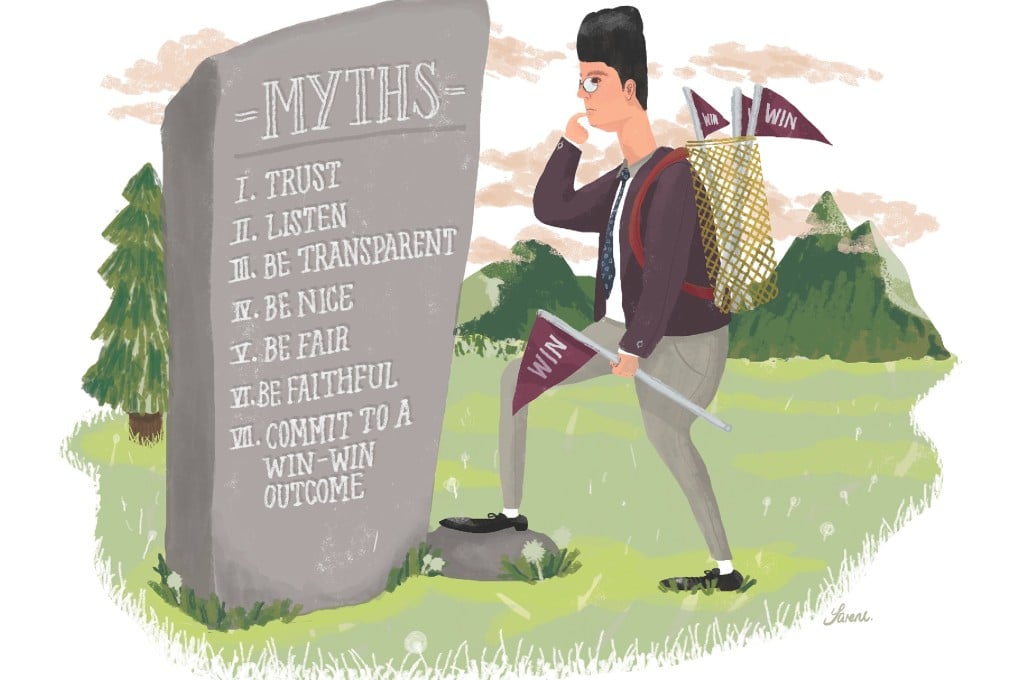The seven myths of win-win negotiations
It sounds fine on the face of it, but not everyone will get what they want and this is more likely to happen to you if you fail to spot the traps

A lot has been written on the subject of negotiations and even on the relatively recent concept of win-win. Such negotiations happen when at least one party tries to get what she or he wants from the other party without the need to use power. Unfortunately, win-win has, more often than not, been misunderstood.

Indeed, having analysed survey answers from 122 students from all over the world at Insead Business School in Singapore, it became apparent that there are seven commonly held beliefs about a win-win negotiation: 1) build trust, 2) listen carefully to your counterparty, 3) be transparent, 4) be nice, 5) be fair, 6) be faithful and 7) commit to a win-win outcome.
The problem with being nice [is that it] may be misinterpreted as a sign of weakness
On the face of it, these beliefs may only seem to be common sense. Consistent with this is a guiding principle in Chinese society called - personal relationships with people from whom one can expect (and who expect in return) special favours and services.
Therefore, given its cultural norms and values, it is often a prerequisite in China to establish a good relationship with a negotiation party with the expectation of reciprocated moves during a negotiation.
The major underlying assumption here is that reciprocation will take place, which naively ignores the risk that it may not. As such, these beliefs - seven win-win negotiation myths - can weaken the ill-advised win-win negotiator and risk creating a power opportunity for the win-lose-minded negotiator to exploit. It's time to explore the seven myths and recommend more refined and effective win-win moves.
